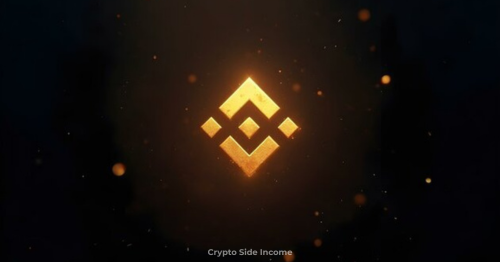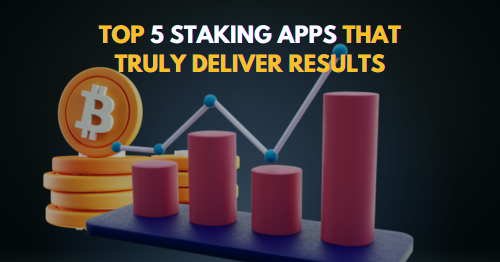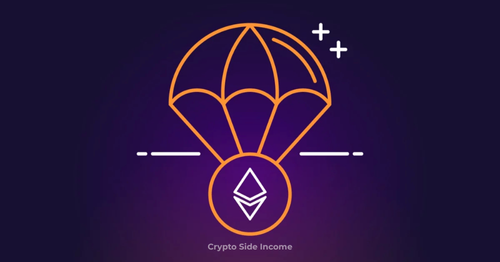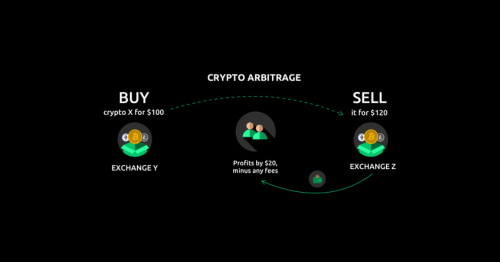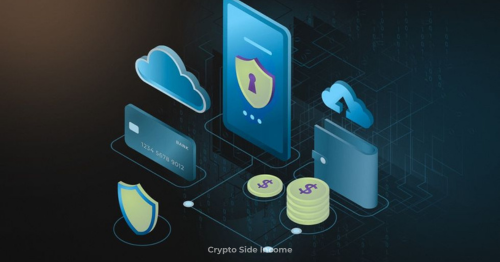
Blockchain Wallet Explained: A Secure Gateway to Crypto
Blockchain Wallet Explained: A Secure Gateway to Crypto. In today’s digital economy, a Blockchain Wallet has become essential for anyone dealing with cryptocurrencies. Whether you’re a beginner or a seasoned investor, understanding what a blockchain wallet is, how it works, and how to use it securely is critical for safeguarding your digital assets.
What is a Blockchain Wallet?
A blockchain wallet is a digital tool or software application designed to securely manage cryptocurrencies such as Bitcoin, Ethereum, and more. Unlike conventional wallets that hold physical cash, blockchain wallets store encrypted keys used to access and transfer digital assets on the blockchain. Instead, it interacts with blockchain networks, enabling users to manage their crypto holdings through public and private keys.
These wallets are designed to simplify the management of complex blockchain transactions, offering a user-friendly interface for crypto enthusiasts. As blockchain adoption grows globally, wallets are becoming more sophisticated, supporting features like staking, token swaps, and integration with decentralized finance (DeFi) platforms.
How Does a Blockchain Wallet Work?
Every Blockchain Wallet operates using two cryptographic keys:
- Public Key: This is like your bank account number. You share it with others to receive cryptocurrency.
- Private Key: This is your secret password. It must be kept confidential because it grants access to your crypto holdings.
These keys work together to authenticate transactions securely on a decentralized ledger (the blockchain), ensuring transparency and immutability.
When a user initiates a transaction, the blockchain wallet generates a cryptographic digital signature using the user’s private key, ensuring authenticity and secure authorization of the transfer. The blockchain verifies the signature using the public key, ensuring that the transaction is valid and tamper-proof. This system enables trustless interactions, eliminating the need for intermediaries.
Types of Blockchain Wallets
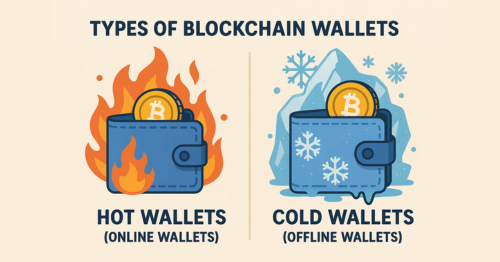
1. Hot Wallets (Online Wallets)
Hot wallets are connected to the internet and offer quick access to cryptocurrencies. They are suitable for daily transactions but come with higher security risks.
- Common types of blockchain wallets: They include mobile wallets for on-the-go access, desktop wallets installed on personal computers, and web wallets accessible through internet browsers.
- Pros: User-friendly, fast, convenient
- Cons: Vulnerable to hacks and malware
2. Cold Wallets (Offline Wallets)
Cold wallets are not connected to the internet, making them more secure from online threats. These are best for long-term storage of large crypto holdings.
- Examples: Hardware wallets, paper wallets
- Pros: High security, offline storage
- Cons: Less convenient for frequent transactions
Read All About: Cold & Hot Wallet
Key Features of a Reliable Blockchain Wallet
When selecting a Blockchain Wallet, it’s crucial to look for certain core features:
Security
A strong wallet offers multi-layer security such as two-factor authentication, biometric access, and private key encryption.
Control Over Private Keys
Having control of your private keys means you have complete authority and ownership over your digital assets, without relying on third parties. Avoid wallets that hold your keys for you.
Multi-Currency Support
A flexible blockchain wallet supports various cryptocurrencies, giving users convenience in managing a diverse portfolio.
User Interface
A clean, intuitive interface enhances usability, especially for new users navigating the crypto space.
Backup and Recovery
Reliable wallets offer seed phrases or backup options to help users recover their assets in case of loss or theft.
Benefits of Using a Blockchain Wallet
Using a Blockchain Wallet comes with numerous advantages that support secure and efficient crypto management:
- Decentralization: You own your money without the need for third parties
- Global Access: Transact anytime, anywhere across borders
- Low Transaction Costs: Blockchain wallets offer significantly lower fees than traditional banking systems, making digital asset transfers more cost-effective and efficient.
- Transparency: Every transaction is recorded on the public ledger
- Speed: Instant settlement compared to delays in banking systems
Risks and How to Mitigate Them
While a Blockchain Wallet offers many benefits, it also comes with risks that users should be aware of:
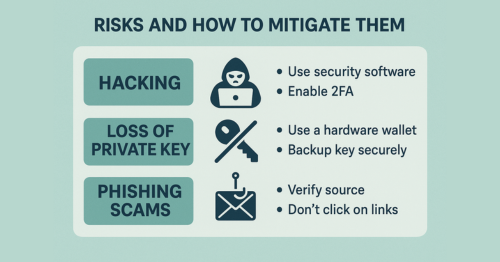
Risk: Hacking
Solution: Use cold wallets for large amounts, enable 2FA, and avoid using public Wi-Fi.
Risk: Loss of Private Key
Solution: Always back up your wallet and store recovery phrases securely in multiple locations.
Risk: Phishing Scams
Solution: Never share your private key. Double-check URLs and only download apps from trusted sources.
How to Set Up a Blockchain Wallet
Setting up a Wallet involves a few simple steps:
- Choose a Wallet Type: Decide between a hot wallet or a cold wallet based on your needs.
- Download the Wallet App: Select a reputable provider.
- Create an Account: Set up with basic information and password.
- Backup Seed Phrase: Write down the recovery phrase and store it securely.
- Fund Your Wallet: Receive crypto using your public address.
Always test the wallet with a small amount of crypto before transferring large sums.
Popular Blockchain Wallet Providers
Though we won’t name specific services here, many established providers offer both hot and cold wallet solutions. Choose one with proven security, positive user reviews, and regulatory compliance.
Some wallets are open-source, allowing the community to audit the code, which adds a layer of transparency and trust. Others come with hardware integrations for added protection.
Choosing the Right Blockchain Wallet
Here are a few tips to help you select the best Wallet:
- Assess Security Features: Ensure it includes 2FA, encryption, and backup capabilities
- Consider Usage Purpose: For frequent trading, hot wallets are better. For long-term holding, cold wallets offer more safety
- Check Compatibility: Make sure it supports your desired coins and integrates with other crypto services you use
The Future of Blockchain Wallets
As blockchain technology evolves, so do Blockchain Wallets. The future holds promise for:
- Biometric Security Integration
- Cross-chain Compatibility
- Embedded DeFi Tools
- AI-Powered Fraud Detection
- Improved User Experience and Accessibility
The continuous evolution of blockchain wallets makes them more versatile, secure, and user-friendly, promoting broader crypto adoption.
Conclusion
A Blockchain Wallet is more than just a digital purse, it is your secure gateway to the decentralized world of cryptocurrency. From choosing the right type of wallet to understanding key features and security practices, knowing how to manage your wallet is crucial for every crypto enthusiast.
Whether you are transacting daily, holding for the long term, or exploring DeFi opportunities, having the right Blockchain ensures that your digital assets remain safe, accessible, and fully under your control.
I work as a content writer in the blockchain and cryptocurrency domain. I have a keen interest in exploring the world of digital assets, Web3, and emerging crypto technologies. My goal is to provide readers with easy-to-understand, engaging, and trustworthy insights, helping them stay informed and confident in the rapidly evolving world of crypto and blockchain.


